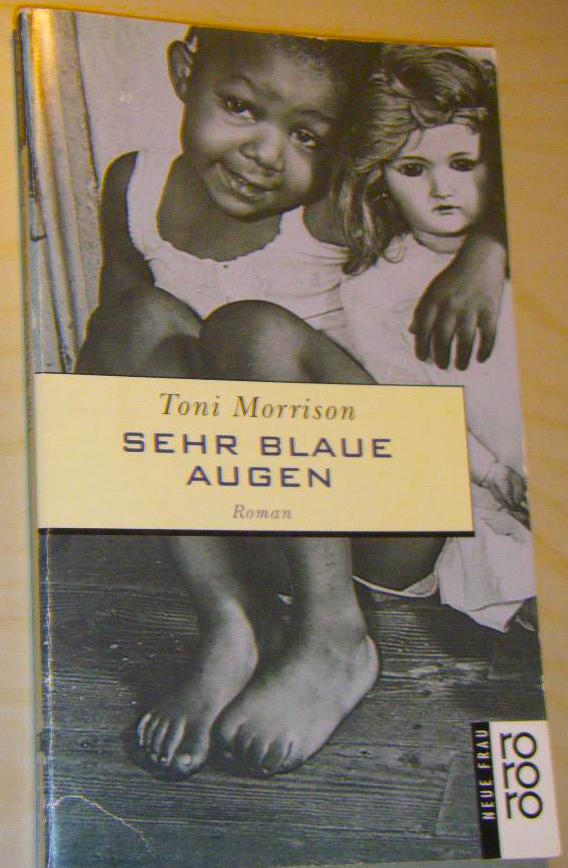 |
     |
| Monday |
Tuesday |
Wednesday |
Thursday |
| July 9 | July 10 | July 11 | July 12 |
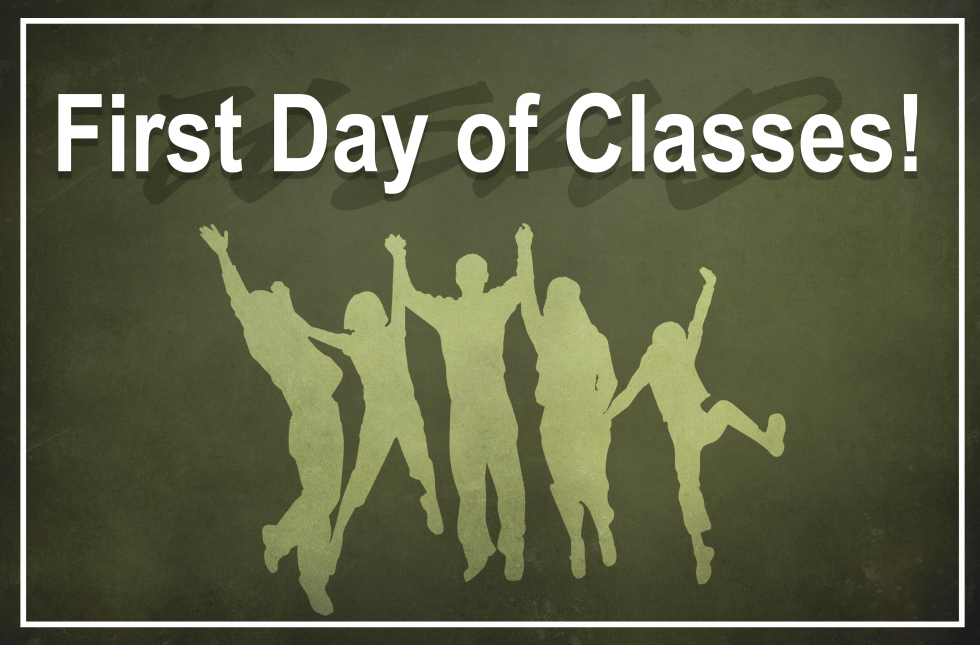 It is the first day of class and of course all we do is read the syllabus and leave early... APRIL FOOL!!!! Actually, today we will go over the plan of the class for a little while... but our main aim will be to carefully screen and discuss a an episode of a documentary series called THE SIXTIES. Our effort will be to use the video to travel back in time--the better to situate us as we prepare to encounter the rad 60s fiction of American original Thomas Pynchon and film documentary genius Frederick Wiseman. You are welcome to begin your reading, finishing the first two chapters of Pynchon's THE CRYING OF LOT 49, but don't worry if you get lost in it (the names alone are crazy groovy), as we will be diving into Pynchon all week. |
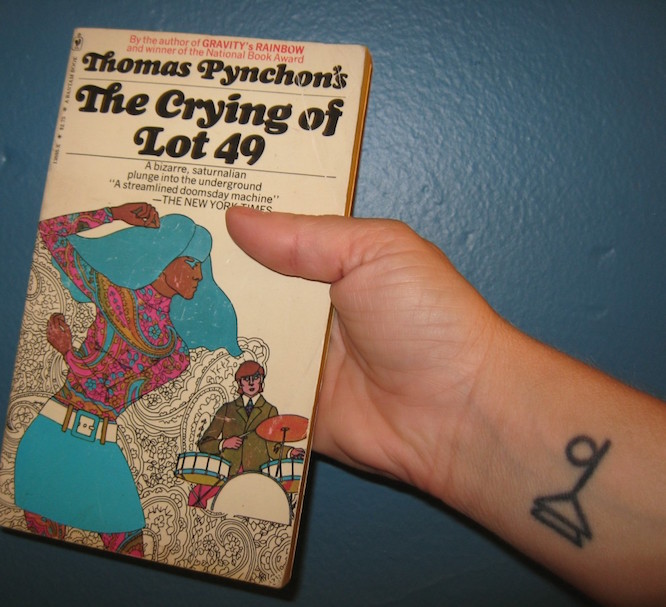 Reading for today? Read the next two chapters (up to Chapter 4) of Thomas Pynchon's THE CRYING OF LOT 49. As you read, try to look for signs of some of the cultural phenomena we gleaned from the Sixties documentary we screened together in class on Monday. Slight change of plan for today as we will use our class time to carefully read together key scenes, images, ideas, tendencies, and peculiarities nested within the first pages of Pynchon's bizarre literary tapestry. What, for instance, is Remedios Varo, below, doing in the story? and what is up with all the references to television and motion pictures? and maps? and drugs? and sex? and fiction?  |
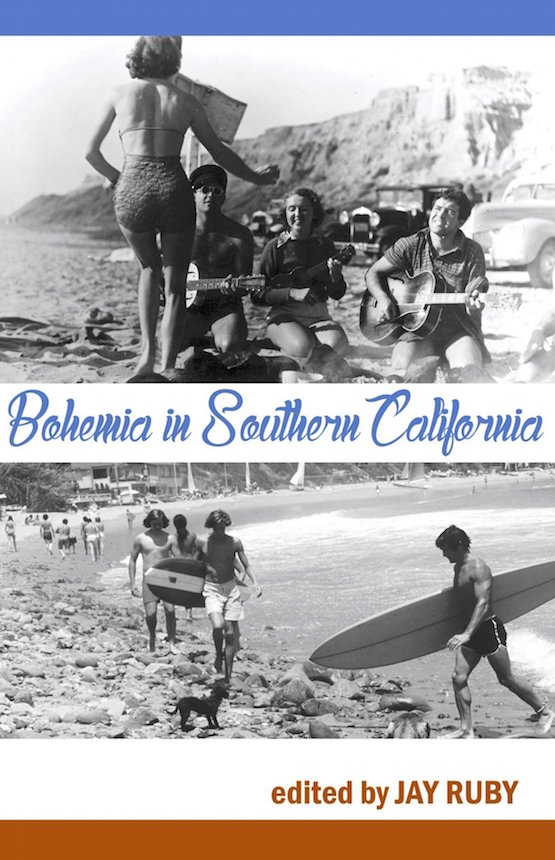 Thomas Pynchon's novel does not come out of nowhere-- something had happened to Americans and "America" since Fitzgerald's Gatsby was all rage on the East Coast, and since Hemingway's stoic heroes braved the wilds of Europe for war, existential crisis and more. So it is that we turn today to the cultural history of Southern California in order to give context to Pynchon's genius tale. Come to class today having read Jay Ruby's introduction to BOHEMIA IN SOUTHERN CALIFORNIA; also read, in the same collection, Katherine Stewart's "Mountain Drive: Santa Barbara's Iconoclastic Experiment in Living," and Pablo Capra's Idlers of the Bamboo Grove. Lastly, read the 5th Chapter of THE CRYING OF LOT 49. Class will only run from 10am to 11am today owing to a scheduling conflict. |
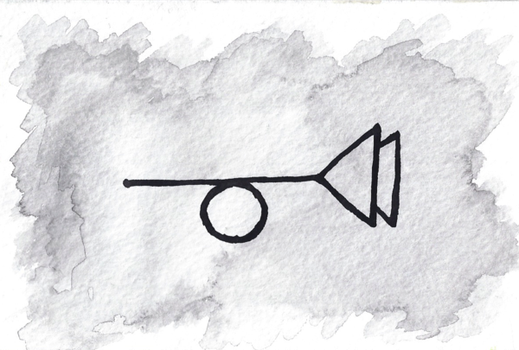 Walk into our seminar having finished your reading of THE CRYING OF LOT 49. In seminar we will discuss the novel and also engage in an in-class writing assignment. You can call it a quiz if you want, but it is more an effort on my part to get to know how your mind works when it is linked to ink and paper. 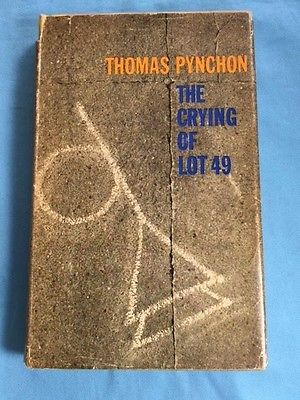 |
| Monday | Tuesday | Wednesday | Thursday |
| July 16 | July 17 | July 18 | July 19 |
Go ahead and complete the first seventy-eight pages (to the end of Chapter 7) in the Del Rey edition of Philip K. Dick's DO ANDROIDS DREAM OF ELECTRIC SHEEP! Today we return to the genre of documentary as we screen, in class, Frederick Wiseman's HIGH SCHOOL (1968). While the SIXTIES: SEX DRUGS AND ROCKNROLL documentary was a product of the 21st century, looking back on the 60s, the film we witness today is a product of its times. Wiseman's mastered (and largely invented) what is called "observational documentary." This 'fly-on- the-wall' cinematic syntax allows us the room to 'feel' 'live' 'sense' the 60s with a anthropologists's distance, but also an American's intimacy. 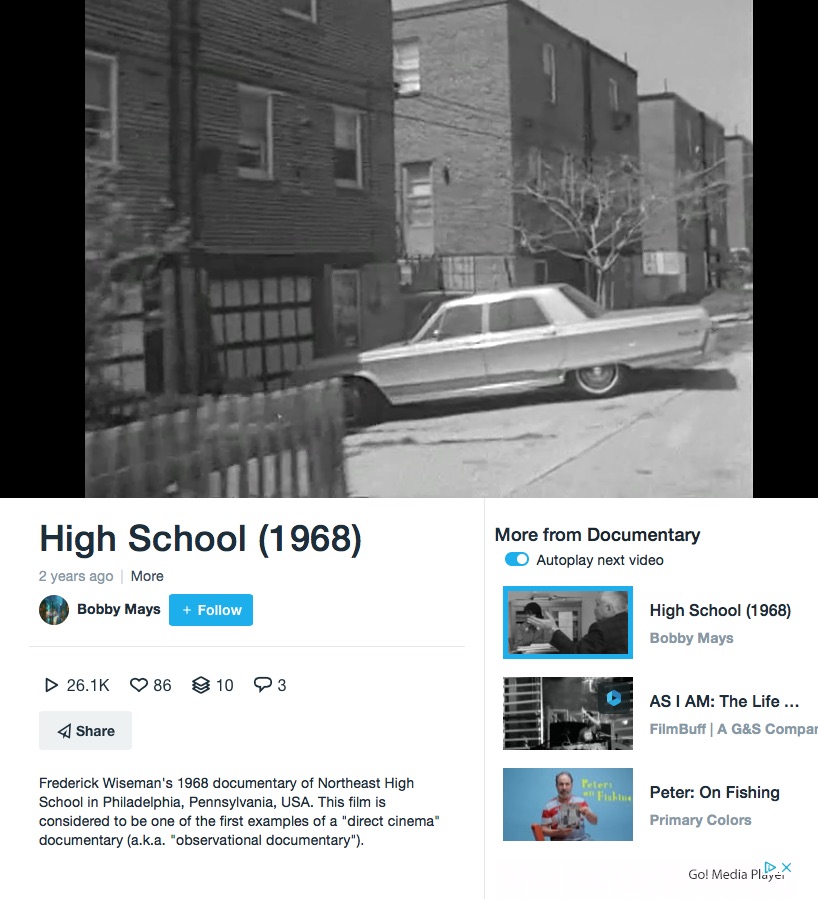 |
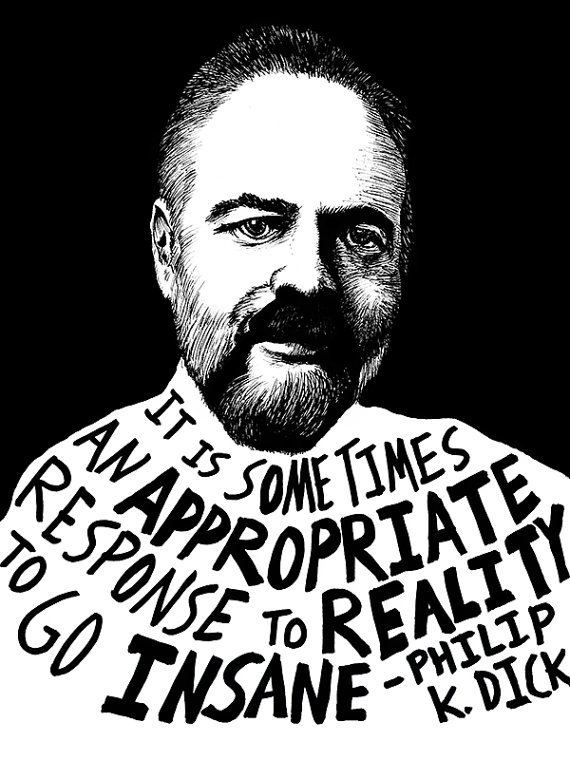 Walk into our garden classroom having read to page 172 (or the end of chapter 15 depending on the edition you are using) in Dick's DO ANDROIDS DREAM OF ELECTRIC SHEEP--the first part of our seminar we will focus on what YOU view to be the pivotal, key passage from your reading to this point--come to class having typed out a key passage or two printed on a sheet of a paper for a possible in-class assignment. Not required but recommended? There's a nice review piece on Dick's novel here. And, a Robert Crumb penned graphic piece on Dick's spirituality here.  |
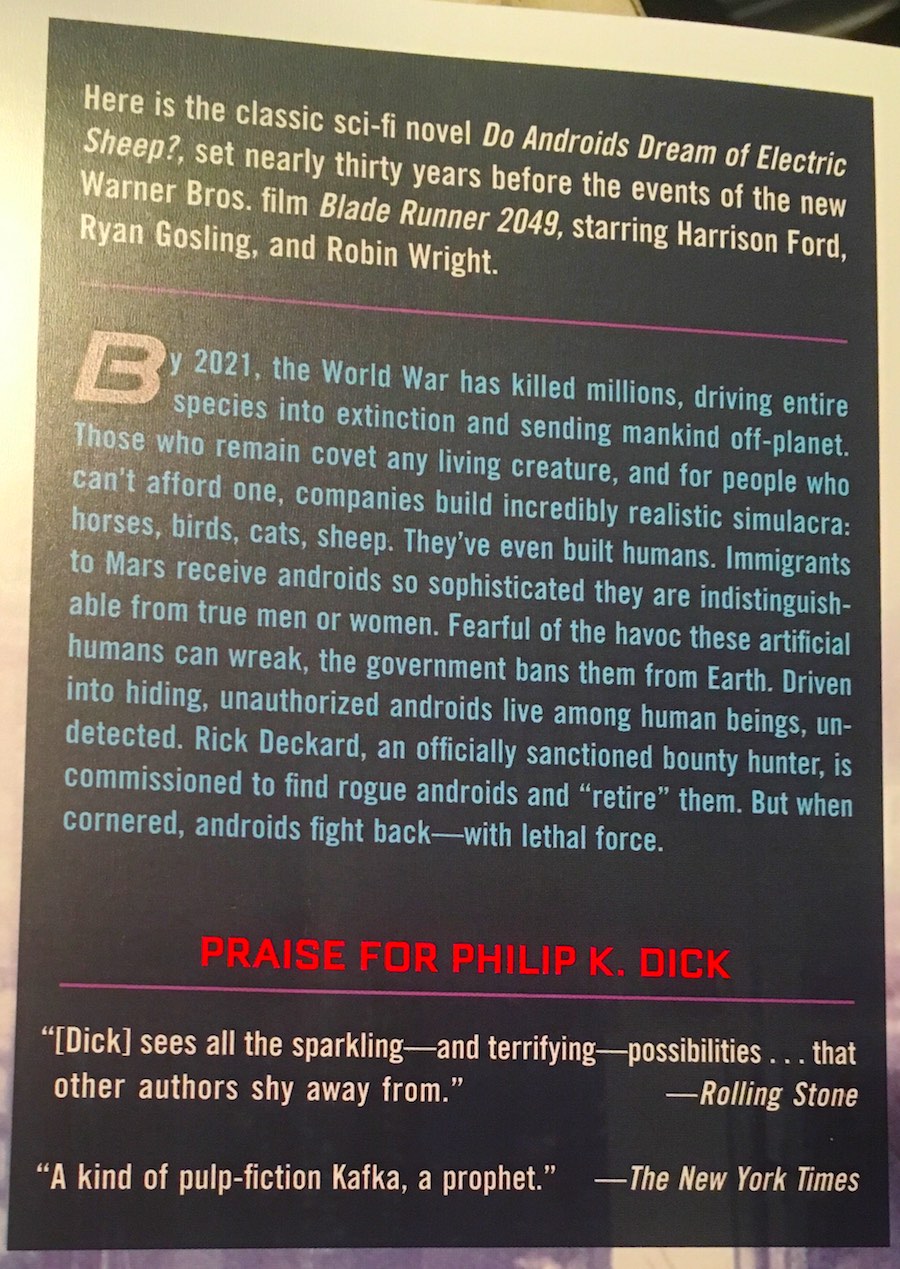 It is a bright Wednesday
morning and you walk into our classroom having finished
your reading of Philip K. Dick's DO ANDROIDS DREAM OF
ELECTRIC SHEEP. Is it too early, or can we begin to draw
some conclusions regarding American Literature, Cinema,
and Culture in the 1960s--what remnants of this epoch live
on today? Which elements are dead, disappeared,
disintegrated, destroyed, erased? It is a bright Wednesday
morning and you walk into our classroom having finished
your reading of Philip K. Dick's DO ANDROIDS DREAM OF
ELECTRIC SHEEP. Is it too early, or can we begin to draw
some conclusions regarding American Literature, Cinema,
and Culture in the 1960s--what remnants of this epoch live
on today? Which elements are dead, disappeared,
disintegrated, destroyed, erased?Another thing to think about BEFORE you walk into the room--what are the similarities, overlaps, and resemblances you find between the storytelling tactics of Pynchon and Dick--what about Wiseman? Does he fit into the mix?  |
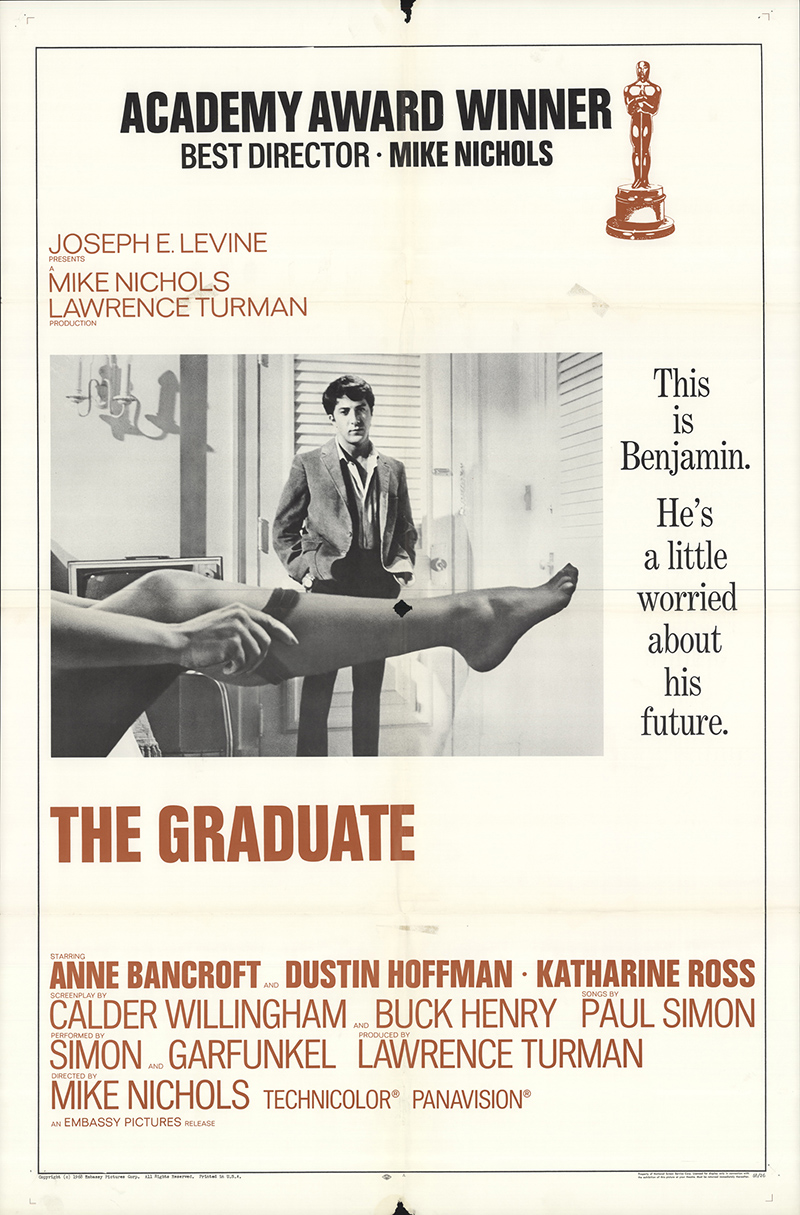 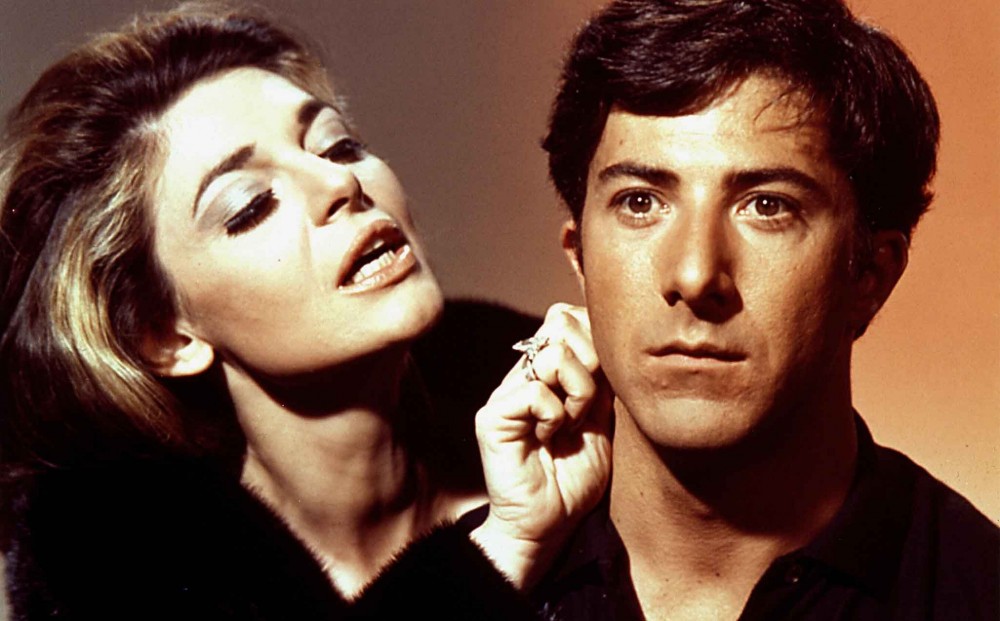 What a treat today--the wizardy cinematic genius and comic wit of Mike Nichols are in the house as we screen THE GRADUATE. A cinematic classic that came to define the clash (and mesh!) of young and old in the 1960s, THE GRADUATE unfolds as a deep meditation on the existential crisis (a breakdown, really) that Uncle Sam experienced in the 60s. I hope that some of you are able to stick around after the screening (it will run 6 minutes past our 11:40 end time). 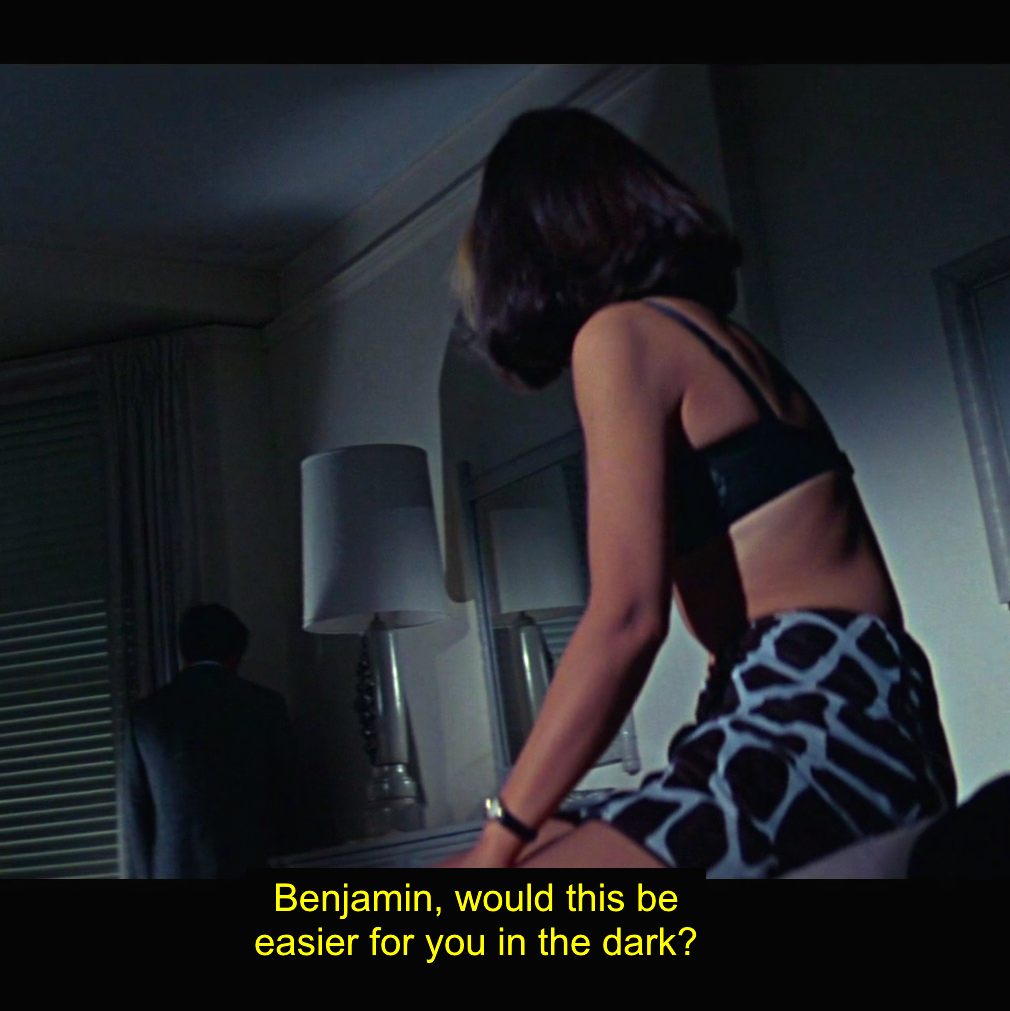 |
| Monday | Tuesday | Wednesday | Thursday |
| July 23 |
July 24 |
July 25 |
July 26 |
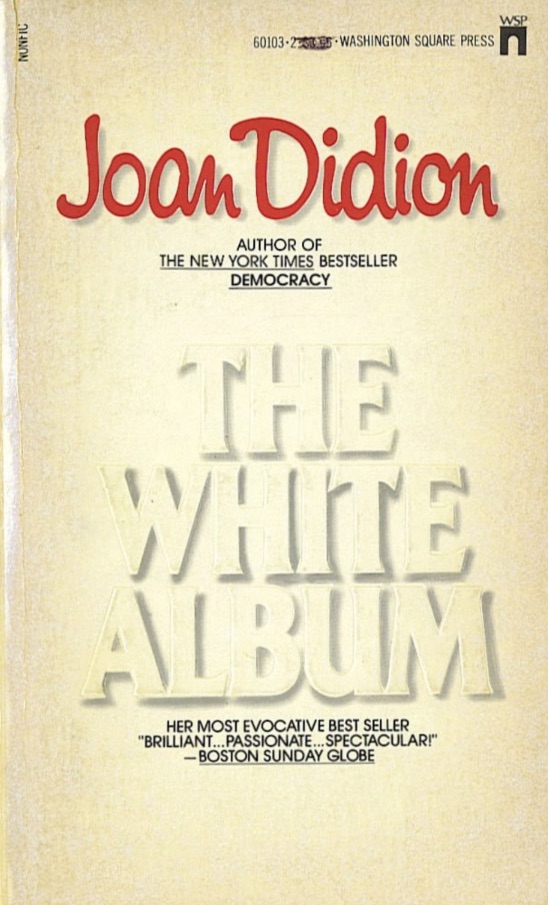 It is a fine and delightful Monday--over the weekend you have been getting intimate with the delicious prose, the non-fiction genius of Joan Didion, reading "The White Album," the lead essay in her collection of essays entitled The White Album--don't know about the original White Album (by the Beatles!)? Go here. 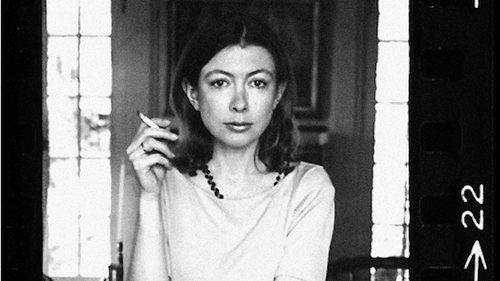 Should you print out the whole article? Probably not, to save money, but do print out key pages with passages/concepts you want to discuss in class. Additional readings? Read the essays by Kristin Lawler, p167; Jay Ruby, p187; and by Harry Polkinhorn, p206--all three are in the BOHEMIA IN CALIFORNIA volume (be sure to bring the book to class in case we have an in-class assignment). |
Easy Rider Screening--in class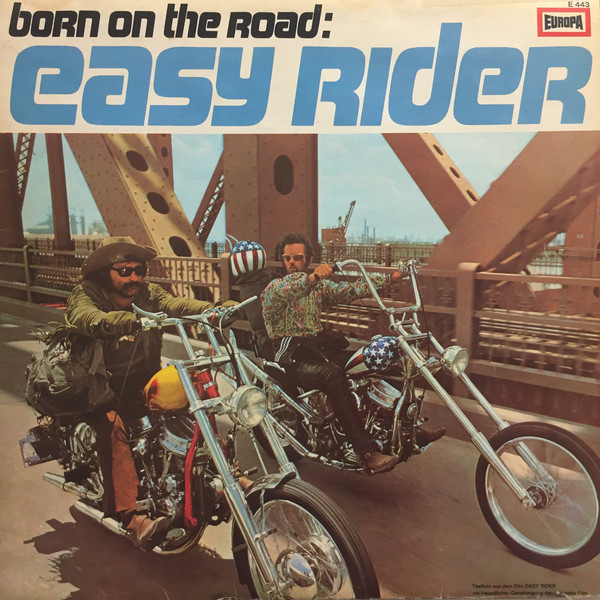 The story behind the creation of EASY RIDER is fascinating--largely improvised and shot guerrilla style in the tumutuous days of riots, assassinations, war in Southeast Asia, Woodstock, and more, the movie captures the Zeitgeist of an American on the cusp of change.  Change from a decade of debate and creativity and chaos, to the 70s, my decade, years known more for blockbuster science fiction movies like STAR WARS and insipid television like the SIX MILLION DOLLAR MAN and CHARLIE'S ANGELS. We will watch and discuss the film in class today--do perhaps try to limit your pre-class hydration rituals as all the exits to the bathroom during our screenings is getting very distracting (as is the clicking of pens which sounds like hordes of mechanical crickets).  |
"Crow" and "Bones" are in the house! Our work today is experimental as we welcome a biker gang onto campus and into our classroom-- depending on what the SDSU Police say, we may have to meet them out on main campus plaza in front of Hepner Hall (details to follow). But this is not a biker gang like the Hell's Angels or Mongols Motorcycle Club--they are a pair of psychoanalysts who drive big Harley's and devote their lives to safeguarding the welfare of abused children! "Crow" is a retired Professor of English and Comparative Literature (and a director of a California Psychoanalytic Center) and "Bones" (who chooses to keep his day job a secret) will treat us to a presentation surveying the history of motorcycle clubs in the U.S., starting in the early 20th century but ramping up after WW II. From there, they will move on to their main focus: Bikers Against Child Abuse, with members present from the local San Diego chapter to discuss their mission and answer questions about the biker lifestyle. For more on the work they do go here, here, here, and here. |
 Is Morrison's novel, first published in 1970 we move into a new decade and leave behind some of the wilder literary tactics associated with Pynchon and Dick--in their place we find a psychological realism that is both moving and terrifying. Be sure to come to class with quotations from the reading that you want to do close readings of in class. |
| Monday | Tuesday | Wednesday | Thursday |
| July 30 |
July 31 |
August
1 |
August
2 |
| Our garden-surrounded in Hepner
Hall is witness to our ongoing trials and tribulations
with American literature, film, and art as we continue
our plunge into Toni Morrison's THE BLUEST EYE--enter
our hallowed halls having read to p. 163 in the book (Have a different edition? Read to the end of the chapter which depicts the awful horrors perpetrated on Pecola Breedlove by her father). These are some of the more difficult passages to read in American Literary history--a chilling, race-hate-infected counterpart to Joe Christmas's attack in William Faulkner's LIGHT IN AUGUST. 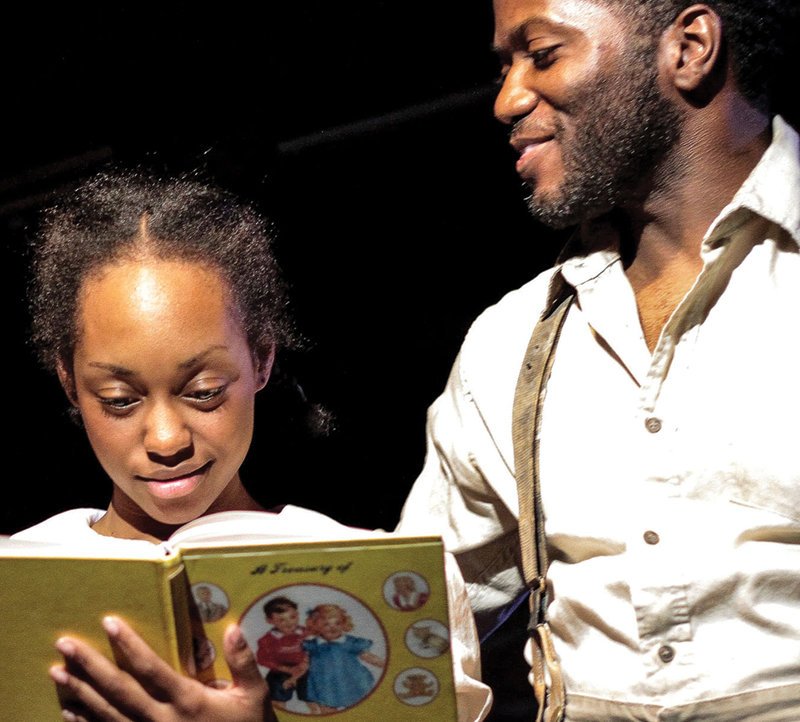 This picture of Pecola and Cholly is from a San Diego Moxie Theatre production of THE BLUEST EYE from 2014--more info here. |
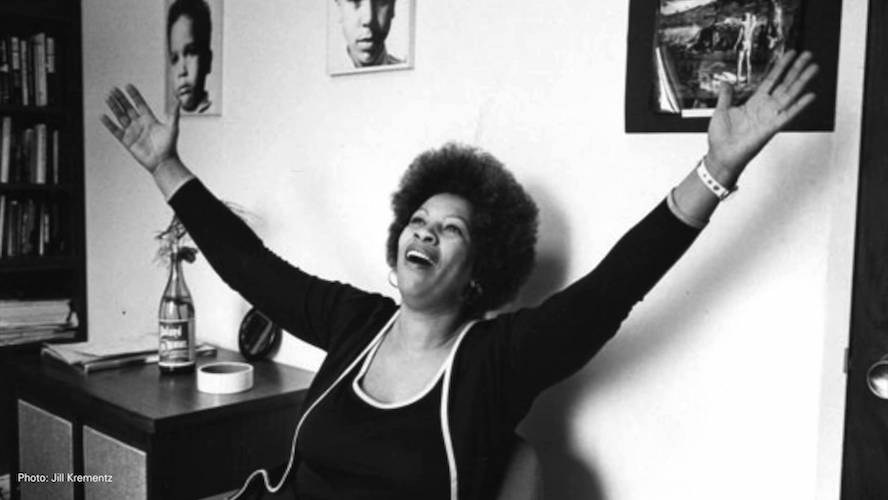 Enter the room having finished reading Toni Morrison's THE BLUEST EYE. The first half of class, 10 to 10:50 will focus on our closing discussion of the novel. Come to class with what you view to be two, related, crucial quotes--one from the first part of the novel; the other from the last part of the novel. These should NOT be quotations / citations that we discussed together in class. Be ready to argue what connects the two quotes and how this connection reveals the inner-workings of Morrison's craft as an American novelist. 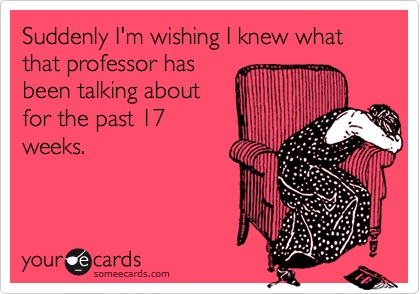 The second half of the class, from 10:50 to 11:40 will consist of an in-class imagination challenge (aka, an Exam). |
 Today we turn to the magic darkness that is Dan Clowes's LIKE A VELVET GLOVE CAST IN IRON. From the 60s and 70s we jump into the 1980s and the vivid, evocative imagination of one of American Literature's (and American comics) most inventive writers and artists. The book, surreal, cynical, irreverent, and, at times, utterly adult (beware!), charts the day to day life of Clay Loudermilk. Come to class having xeroxed (not chopped out of the book) a panel or two from the story that you view to be essential to its unfolding narrative. Having trouble following? Don't be shy about reading the wikipedia entry. Read to page 101. Not required but highly recommended is David Lynch's BLUE VELVET -- presently streaming free for Amazon Prime members. See it here BEFORE reading VELVET GLOVE and it will be a bit easier to contextualize and follow! 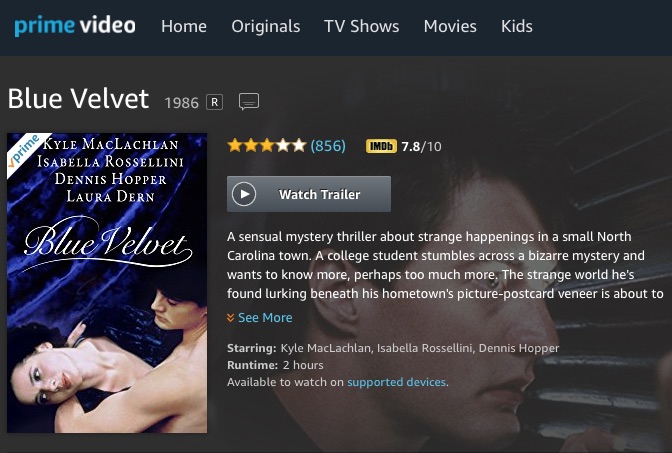 |
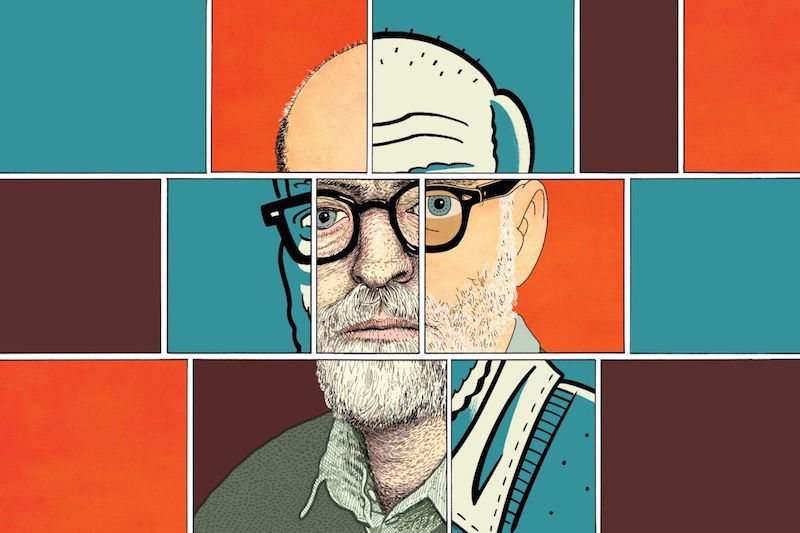 LIKE A VELVET GLOVE CAST IN IRON tours the dark side of America--an America that gives it over to mass paranoia, sub-cultures, secret-societies and conspiracies. The world(s) Loudermilk is caught up in is (are) not that far from the ones Oedipa Maas traversed and yet in the years that have passed since Pynchon's mini-opus, things have gotten darker, worse in a way. While Morrison's THE BLUEST EYE was a meditation on what can be called an internalized "grotesque"--the broadcast of racialized hatred yielding an anti-aesthetic self-loathing, Clowes is up to something else with this graphic narrative. If you are new to graphic narrative and find VELVET GLOVE hard to follow, you might be interested in Clowes's masterwork, GHOST WORLD. Note--your imagination challenge, aka 'the essay' is now LIVE and available for consultation! |
| Monday | Tuesday | Wednesday | Thursday |
| August 6 |
August 7 |
August 8 |
August 9 |
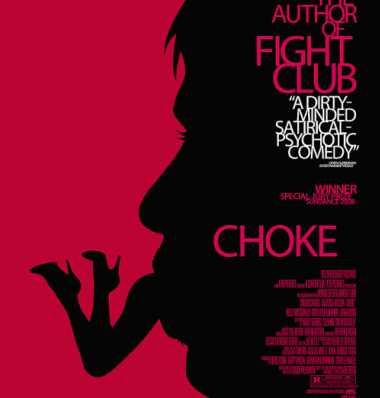 Over the weekend you have choked on the first 187 pages of Chuck Palahniuk's CHOKE! Palahniuk is an American original and one of our bestselling and innovative American writers presently still churning out new product. We have an added treat today in that my former student and present Professor at Mt. San Antonio College, Michael Wyatt Harper, will be leading our discussion with something he's calling "Imposters, Impositions & Implications: Paradigms of Selfhood in Chuck Palahniuk’s Choke." Harper did his graduate work at SDSU and Clairemont Graduate University and is completing a book on the Absurd and Comedy in American Literature--his word for the day? Ludic! Here's Professor Harper in his groovy 60s getup! 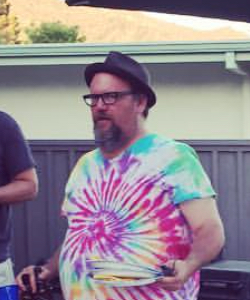 |
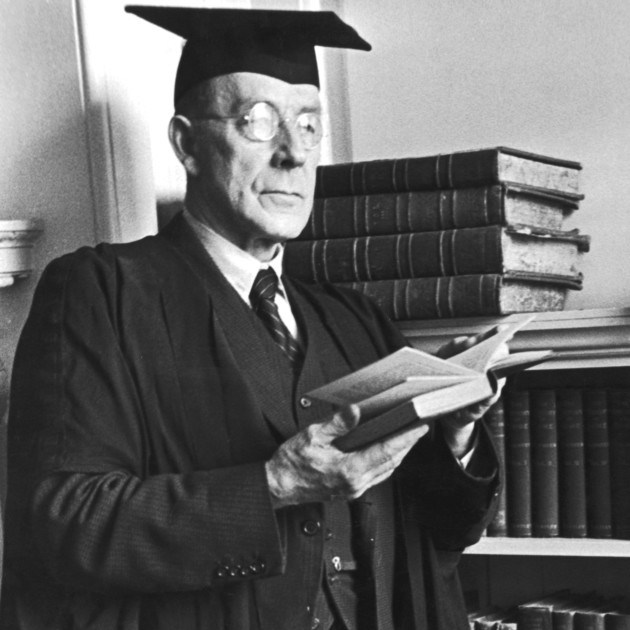 CHOKE is finished--that is YOU have finished reading Chuck Palahniuk's novel when you walk into the room today. Today YOU are the professor as each of you should be prepared to come to the front and be Professor for the day, directing us to a key passage or two and then performing a close reading/analysis of the same! Have these passages TYPED out on a clean sheet of paper as that is how I will take attendance today! 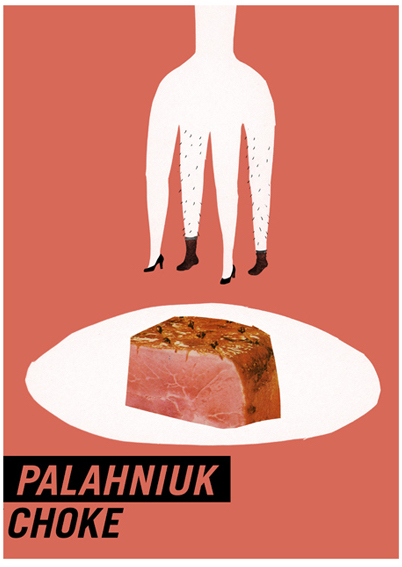 |
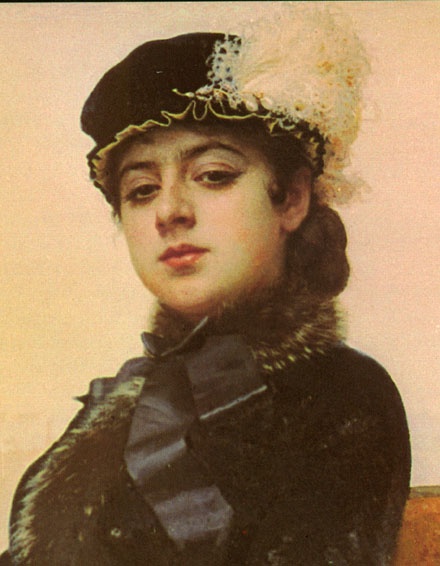 DORA: A HEADCASE by Lydia Yuknavitch is a trip and a half--but it is also a parody, so the trip and a half only will be experienced by folks who are familiar with the writings of Sigmund Freud--what to do, what to do!?? Before you read DORA: A HEADCASE, it would behoove you to read the case history written by Freud documenting his professional treatment of Ida Bauer, aka "Dora," the pseudonym he gave her. You can do that here (huge file download; don't try on smartphone) in the original German side by side with the James Strachey translation. Don't have time for that? Then read this brief article overview; or this wikipedia piece. After that, plunge into the novel where Dora, Ida Bauer, is reborn (and seemingly fused with Dora the Explorer)! Read to page 133 in your edition of DORA: A HEADCASE. 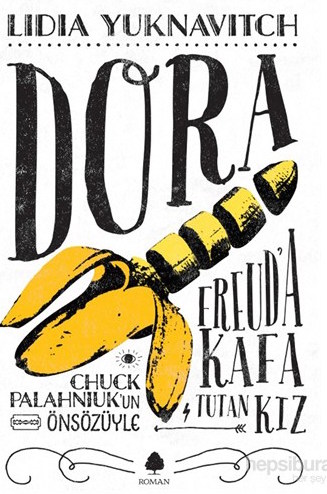 |
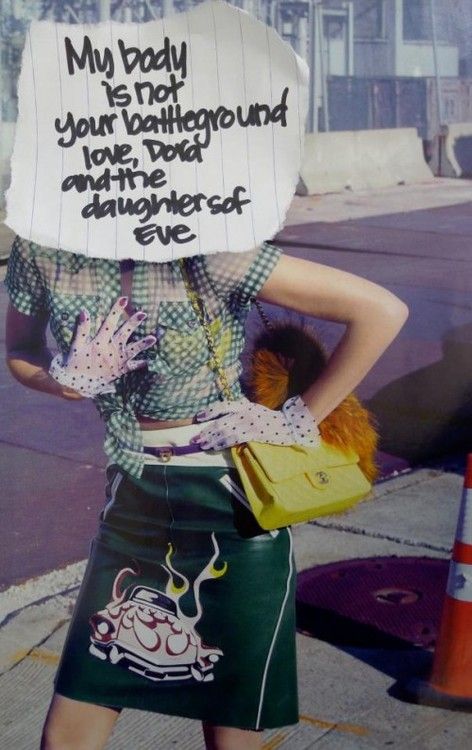 Walk into our glorious asylum of literature having finished Lidia Yuknavitch's DORA: A HEADCASE. We have spoken here and there of American literary history--how the traces of Hawthorne and Poe live on in writers like Clowes; how Faulkner inspired Morrison, etc. Here we have a different kind of influence--a Viennese cigar-smoking psychoanalyst, Freud, inspires and biting homage that only the 21st century (and Yuknavitch) could have birthed. Please bring a printout of a quote from the last 100 pages of the novel that you think sum up the goal of this novel. 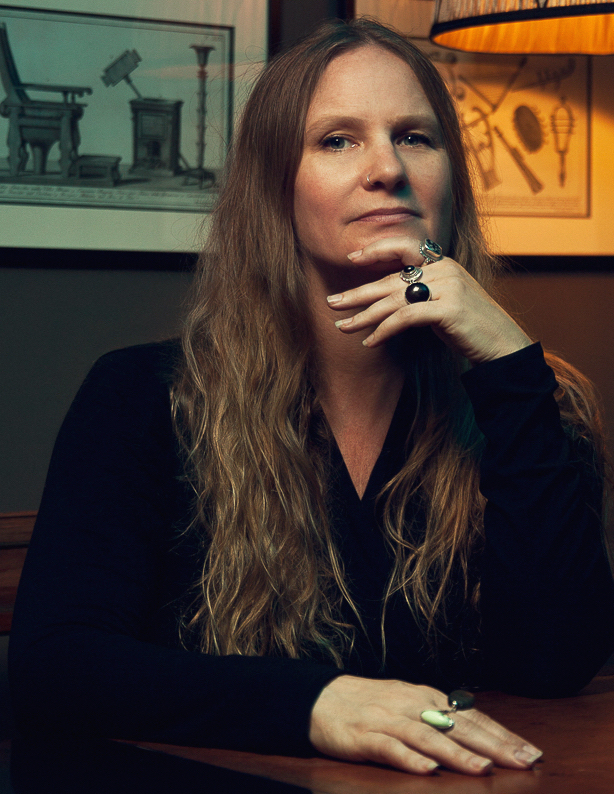 |
| Monday | Tuesday | Wednesday | Thursday |
| August 13 |
August 14 |
August 15 | August 16 |
Final Imagination Challenge Due in class at 10am--in class, we will screen episodes of CHAPPELLE SHOW and INSECURE. No reading for today. 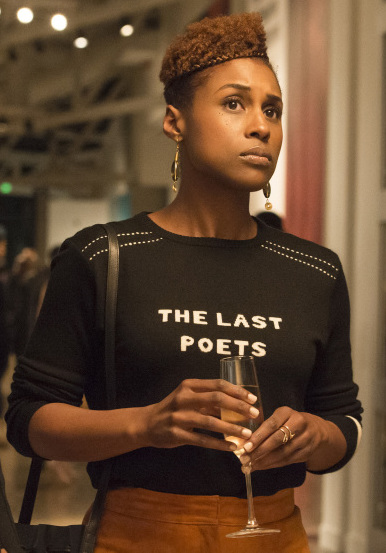 |
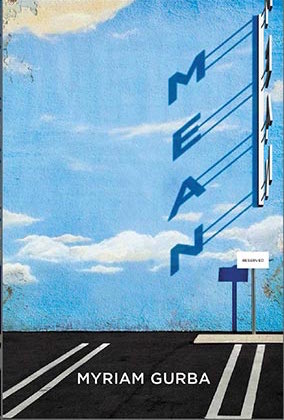 Read to page 111 in Myriam Gurba's MEAN. As with other authors, Gurba blends comedy, satire, tragedy, and violence in a memoir that evolves as a manifesto for female subjectivity in the 21st century. Curious about the "real" Myriam Gurba? Catch up on her doings here. |
Walk
into class having finished Gurba's MEAN--how does she
connect to other
writers we have experienced this semester? How is she
unique. |
 Final Exam, aka Final Imagination Challenge! |



